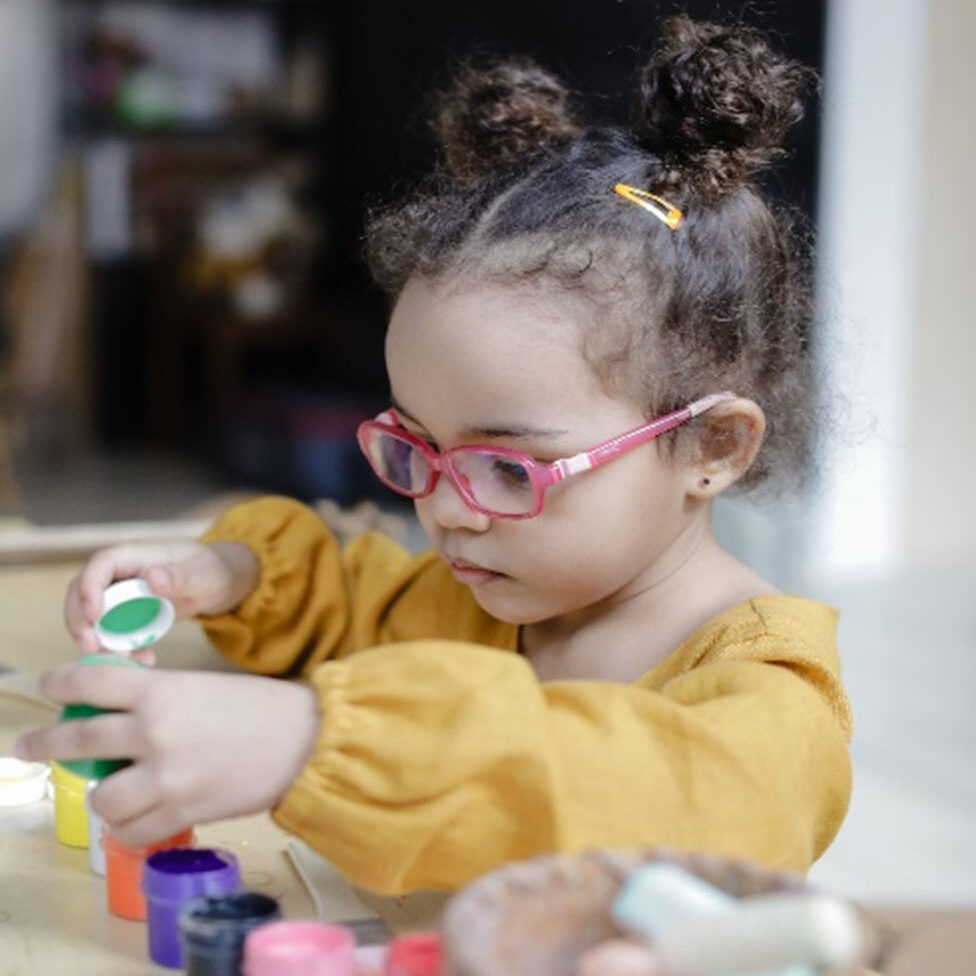Classrooms are divided into developmental stages with developmentally appropriate curricula and activities to support the social/emotional and academic achievement of each child at their own pace. Individual children can be moved to groups more appropriate for their individual achievement.
"What you help a child to learn can be more important than what you help him to earn."

Primary Areas of Development:
Cognitive Development
Cognitive
Cognitive skills encompass a student’s ability to think, learn, understand, problem-solve, reason, and remember. Bakari incorporates a culturally responsive brain-based approach to encourage young people to use their senses to explore. Brain-based learning theory recognizes we process information based on our experiences and new information needs to be anchored to prior knowledge. Children will start to apply knowledge through familiar activities as they are exposed to newer ones. They read daily to help promote thought development and have opportunities to build their self-confidence. We strategically choose books and literature that affirm and validate their experiences. This approach is also expanded through activities and games.
Physical Development
Health and Wellness
The health and wellness development of children is encouraged by providing opportunities for them to be active and interactive, improving their skills of coordination, manipulation, and movement. They are introduced to using mindfulness to learn about themselves and make connections between their mind, body, and emotions. They develop an understanding of the importance of making healthy physical and emotional choices.
Development Personal, Social and Emotional
Personal, Social and Emotional
A positive sense of identity is crucial to the development of self-esteem and confidence. Children who feel worthy and capable are more likely to be optimistic and to do well in life. Children are provided with experiences and support which will help them to develop a positive sense of themselves and of others: respect and appreciation for the contributions of their culture and community and the contribution of others who look like them. They will gain critical social skills and a positive disposition towards learning. In addition, students will build on their vocabulary and are introduced to a range of new vocabulary words and their meaning. They are encouraged to practice and use words to help articulate their feelings, desires, and needs. Scholars are provided with the opportunity and encouragement to use their skills in a range of situations and for a range of purposes and are supported in developing the confidence and disposition to do so.
Label
Knowledge and Learning
Research shows children possess sophisticated causal knowledge about the physical, psychological, and biological domains of knowledge. This enables their predictive explanatory and counterfactual reasoning abilities. Students who discover information for themselves are more motivated to achieve goals and more likely to remember learned information. Our goal is to apply this process of learning by providing project-based exercises. This will allow scholars to generate hypotheses and conclusions from their own actions and the actions of others. Discovery learning is important for learners to understand connections, tap into higher thinking, and helps to build pathways for self-discovery and the world around them.
SUMMER PROGRAM
Summer Makers Program
Our summer makers program provides space and support for participants creativity and innovation. “Makerspaces are increasingly being looked to as a method for engaging learners in creative, higher-order problem-solving through hands-on design, construction, and iteration”. According to the NMC (2015), makerspaces have the potential to effectively address the necessary skillsets for students in the 21st Century. The Summer Maker Program engage k through 3rd grade participants in various STEAM projects. Participants create individual and group designs while being challenged with learning a new skill. They are in control of their own learning and gain an understanding and appreciation for the process even if their final product is not necessarily what they intended. At the end of the summer program participants host a community maker fair and bazaar where they display and demonstrate their favorite projects. The Summer Makers Program begins Mid-June through late August. Participants can register for the entire summer or in bi-weekly increments.
HOMESCHOOL LEARNING POD
Ukoo Village
Ukoo Village
The Swahili term Ukoo means kindship group. It encompasses a much wider range of relationships including extended kin, friends, and others who are uniquely connected including people who share common ancestry. Belonging to a kinship group comes with responsibilities; everyone is responsible for the whole group thus creating community. The Ukoo Village – Homeschool Learning Pod creates strategies to provide support for homeschool families. The Ukoo program recognizes historical and psychological factors that influence family and community practices and takes a strength-based approach to affirming Afrocentric culture and values. The Ukoo Village consists of daily activities and monthly workshops to promote culturally relevant academic and social experiences to support the child in the “village”. Ukoo Village provide families with affirmational, informational, and transformational resources to assist their young children with academic, social, and emotional support. In addition, families are provided with information and connected to resources that support their economic development.
